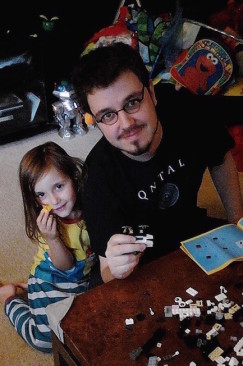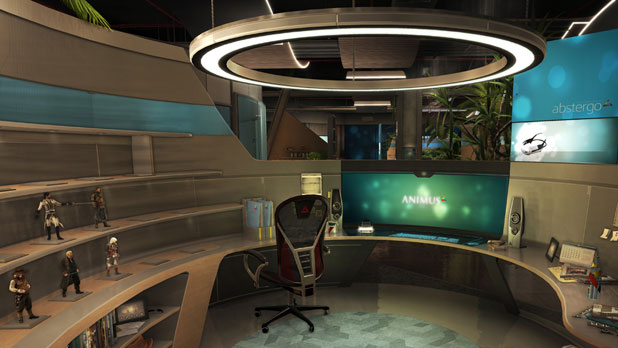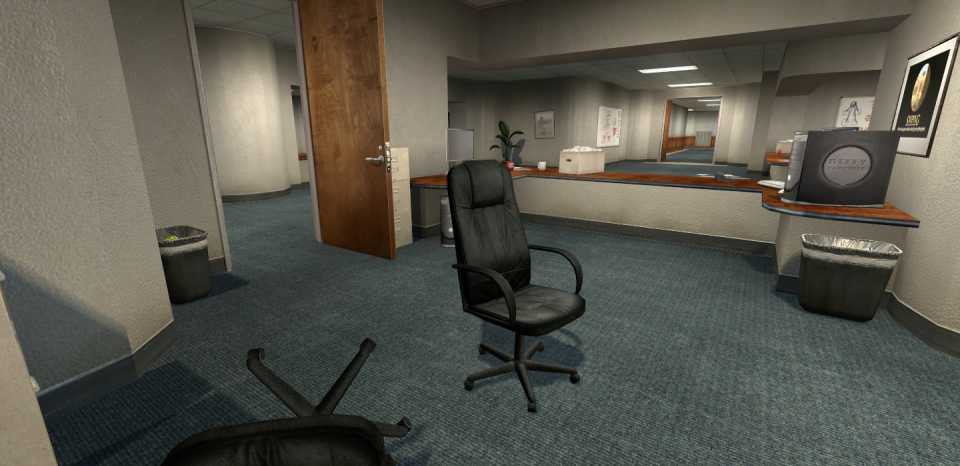
Whether inside or outside, you can look at the video game industry and see what looks to be a borderless boomtown. It makes millions, when taken as a whole, and it’s cool, or at least cool enough for ESPN to broadcast. But the industry is a weird place, where wealth lives on a knife’s edge. Where a wrong decision can send a studio into a death spiral, costing jobs and well-being, but a slight break the other way catapults a game into the stratosphere. It’s the edge of the tech sector, where the money available seems always on the verge of granting stability for everyone but never quite grasping that goal with any lasting firmness.
Here are the facts, in raw form. A video game worker averages 2.7 employers every five years. 48% of those unemployed are over a year looking for a job. Figures from 2014 show a layoff rate twice the national average. 62% of workers still crunch, with 17% of those working over 70 hours a week. 36% of those who work over 40 hours a week receive no extra compensation. And 44% of those who don’t crunch work well over 40 hours a week; they don’t even know that they’re crunching.
These facts do not change. They are there, year after year. We shake our heads. We tsk and say, “what a shame” and then forget. And then the next article comes out, with the same figures, a percentage change here and there. We reboot, reset our disappointment at the state of things, rekindle it, and then get lost in the next listicle or big title.
But the numbers above are those of a crisis. I know that it doesn’t really feel like a crisis, either inside the industry or out. It’s so big and loud and modern, with neon conventions and smiling producers rattling off marketing speak about how their next project is even bigger, louder, and more modern than ever before. How can this silly, garish thing we all love so much crush the people who create it?
Every time I write an article about games and labor, I get messages from people inside the industry stating how sick they are of it. How they want it—no, need it—to change. Every time. And my answer is always the same: I’m just a writer. These are the figures. Awareness is all I can contribute to.
I’ve become increasingly dissatisfied with that answer. Because, at this point, every media outlet has the same article quoting the same figures. It’s a semi-annual ritual for them (for us) to put up the results of the IGDA surveys, as I did at the outset of this article. We’re all aware now. It hasn’t helped.
So that’s what this article series is about. On a (hopefully) regular basis, I’ll pull a thread from the fraying fabric of the gaming industry. Some months it will be data driven, others a cultural analysis. We’ll see what unravels. And, hopefully, potential solutions will be mooted and discussed by the people in whose hands changing the industry lies: The folks actually making the games.

Here’s the thing. One of the common questions I’ve received over the past two years since I started writing about the industry and its labor practices is “how can I fix this?”
The answer, glib as it is, is that you—the singular you, the singular I—cannot fix it. But the plural you? The we? That group of people can definitely change it. That can take a lot of forms, forms this series will discuss at a thousand word a time clip, and I’m not coming into this with any preconceived notion of what the “right” form is. But I am sure as anything that it won’t be hoping it gets better through sheer dint of rugged individualism.
So why should you, the Giant Bomb reader, care? Well, because you love video games. And I love video games. Jeff and Austin and Alex and Vinny and everyone else at Giant Bomb love video games.
Loving video games should mean more than just enjoying playing them. We should take an interest in and care about the welfare of those who make them. Because it’s a lot of people. We still have this idea that games are Will Wright in a garage with three buddies coding SimCity, but that’s not what it is. Where it was once a handful of people crunching, it’s now hundreds, thousands when teased out over the entire industry. It is industry. That’s not just a cute word. Video games are industrial in scale and scope.
That means caring about the QA guy and the IT lady doing the grunt work, not just Ken Levine. It means that even if the writing team can work from home, we still care about the coders pounding out just one more line at 1am on a Tuesday. It means that, when we see a presentation given by a game CEO at PAX, we look past that lone figure and see the toil and love of the dozens who made the platform he or she stands on.
We should also care because video games are increasingly influential. What happens in the video game industry, from the actual game content to work practices, filter out into the world at large. That ideas about creation and about the shape of the workplace that diffuse out into other industries should be the best of the gaming, not the worst. You don’t want to go into the insurance office where you work to find out your benefits have been cut, but hey, you have a new foosball table, believe me.
Worse, the industry (and games themselves) are increasingly hamstrung by burnout. If you’re still of the mindset that it’s the Levines and Kojimas who matter most, that’s fine. You should want to find the next Levine or Kojima. And he or she is not going to waltz through the door with full blown ideas ready to go. Those people are working in the trenches, doing 70 hour weeks, getting laid off over and over and over. The next Will Wrights have probably already burned out, sucked dry by the industry. They wanted to see their kids or spouses. They wanted to settle down and not move every four years. They wanted to know what their paychecks were, when they were, and know they weren’t on the chopping block anytime the stock ticked down half a percent.

The potential for a voice actors’ strike currently looms in the background. While it deserves longer treatment, it is enough to briefly say that reactions to this labor action have been mixed. If SAG-AFTRA strikes, it will almost certainly not be perfect. But if we wait for the perfect strike for the perfect demands by the perfect union, we will never stop waiting. The perfect cannot be the enemy of the good, as they say. The voice actors are not competition for other industry worker contracts; they’re pointing a possible way forward toward a better future for the rank and file of the industry. If even half their demands are met—and they will be—then a saner, more stable work life is there for the grasping by the coders, writers, and developers who make up most of the industry.
It’s good for everyone—workers, fans, and finance people, alike—if the next auteur doesn’t burn out. We want the best people sticking around. And we want a range of voices from across ages and experiences, something which the industry, so tightly tailored for single men aged 30 or younger, has a hard time providing in its current form.
So this is where we’re at. It’s time to discuss how things are actually changed. Let’s contextualize those numbers and talk about moving forward. I’m positive that what I think is best will not always be what you, the reader, think is best. That’s fine; this is how practical ideas come about. But change has to happen or we’ll be left with an industry and form of entertainment which none of us will be happy with.
It’s time.
Ian Williams is a freelance writer and author based in Raleigh, North Carolina. His work has been featured in Jacobin, The Guardian, Paste, and Vice. You can find him on Twitter at @Brock_toon. You can listen to Austin chat with Ian on the most recent episode of Giant Bomb Presents.
180 Comments